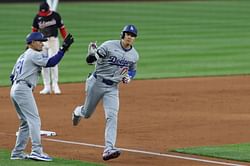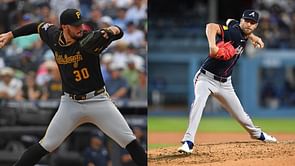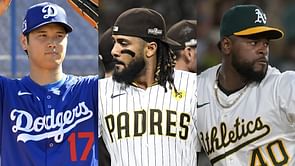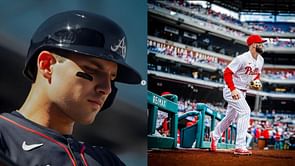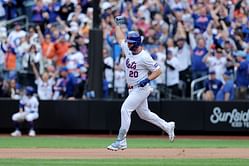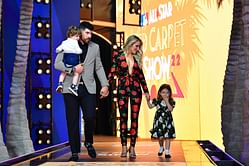
The Major League Baseball (MLB) playoffs are the yearly competition that decides the champion of MLB in both the United States and Canada. This highly anticipated event takes place every October, engaging fans and players alike as top teams from the American and National Leagues compete for dominance. The playoff format consists of a combination of Division Series, League Championship Series, and World Series.
The playoffs were initially introduced in 1903 with the inception of the World Series style. Over time, this structure has changed. The champions of both the American League Championship Series (ALCS) and the National League Championship Series (NLCS) face off in a best-of-seven matchup during the World Series. With 40 World Series appearances, the New York Yankees hold the record for most playoff entries, also having 27 World Series titles to their name. Following them are the Boston Red Sox and St. Louis Cardinals with nine and 11 championships, respectively. Notably, during the 2020 playoffs, there was a significant adjustment to a 16-team format implemented due to restrictions caused by the COVID-19 pandemic.
How many rounds are in MLB playoffs?
The MLB playoffs consist of four main rounds, including Wild Card, Division Series, League championship series, and World Series.
Wild Card Round: This round includes two Wild Card games in each league, featuring four teams (two from the AL and two from the NL) that did not win their divisions. The winners advance to the Division Series.
Division Series (ALDS and NLDS): This round features the winners of the Wild Card games and the top three division winners in each league. These teams compete in a best-of-five series.
League Championship Series (ALCS and NLCS): The winners of the Division Series in each league face off in a best-of-seven series to determine the league champion.
World Series: The champions of the ALCS and NLCS play against each other in the World Series, which is a best-of-seven series to determine the overall MLB champion.
MLB playoff rules
The Major League Baseball (MLB) playoffs are a highly awaited event. To ensure a fair and thrilling contest, MLB has put in place a series of rules and regulations governing the organization and management of the playoffs.
1. Teams Involved
Total Teams: 12 teams qualify for the playoffs: the three division winners from both the American League (AL) and National League (NL), along with three Wild Card teams from each league.
Wild Card Teams: The two teams with the best records that did not win their divisions in each league earn Wild Card spots.
2. Playoff Format
Wild Card Round:
The Wild Card teams play a single elimination game.
The higher-seeded team hosts the game.
Division Series (ALDS and NLDS):
The four winners from the Wild Card Round and the two division winners with the best records compete.
This is a best-of-five series.
League Championship Series (ALCS and NLCS):
The winners of the Division Series play in a best-of-seven series.
World Series:
The champions of the ALCS and NLCS face each other in a best-of-seven series.
3. Home Field Advantage
Wild Card Game: The higher seed hosts the Wild Card game.
Division Series: The team with the better regular-season record has home-field advantage.
League Championship Series and World Series: The team with the better regular-season record has home-field advantage, which alternates hosting games.
4. Game Rules
Extra Innings: If a playoff game is tied after nine innings, extra innings are played until a winner is determined.
Pitching Changes: Teams can make pitching changes, but each pitcher must face at least three batters unless the inning ends or the pitcher is injured.
5. Tiebreaker Rules
In the case of tied records for playoff positions, various tiebreaker rules are applied based on head-to-head records, division records, and other criteria.
6. Championship Trophies
The team winning the World Series receives the Commissioner's Trophy, while the AL and NL champions receive their respective pennants.
How does MLB playoff seeding work?
The seeding system for MLB playoffs is structured to give the leading teams an optimal opportunity to progress through the postseason. Each league, comprising the American League and National League is broken into three divisions, with the teams that secure the best records in each division recognized as division champions.
These division champions are ranked according to their performance during the regular season. The team boasting the top record across both leagues receives the highest seed, followed by the remaining two division winners.
The playoff format kicks off with a Wild Card Round, where two Wild Card contenders compete in a single-elimination match at home of the higher seed. The victor moves forward to partake in the Division Series against this year’s top seed (the division champion with superior performance), while other pairings of division victors engage in best-of-five series battles.
Successful teams from these Division Series proceed to confront each other in the League Championship Series, which adopts a best-of-seven structure. In this phase, matchups pit higher seeds against lower ones. Home-field advantage throughout playoffs hinges on seeding: generally, those holding higher seeds enjoy more games played at home, including hosting rights for Wild Card matches awarded to them.
2024 MLB Playoff Seeds
| Seed | American League | National League |
| 1 | New York Yankees (AL East Champions) | Los Angeles Dodgers (NL West Champions) |
| 2 | Cleveland Guardians (AL Central Champions) | Philadelphia Phillies (NL East Champions) |
| 3 | Houston Astros (AL West Champions) | Milwaukee Brewers (NL Central Champions) |
| 4 | Baltimore Orioles (Wild Card) | San Diego Padres (Wild Card) |
| 5 | Kansas City Royals (Wild Card) | Atlanta Braves (Wild Card) |
| 6 | Detroit Tigers (Wild Card) | New York Mets (Wild Card) |
MLB Playoff Announcers
Announcers during MLB playoffs significantly enhance the experience for fans watching in the postseason. They deliver play-by-play commentary, along with analysis and insights that assist viewers in grasping the complexities of the games. Many of these commentators have rich backgrounds in baseball, having previously served as players, coaches, or sports reporters.
| Year | League | Series | Network | Play-by-play | Color commentator(s) | Field reporter(s) |
| 2024 | AL | Houston Astros/Detroit Tigers | ABC | Michael Kay | Todd Frazier and Tim Kurkjian | Alden González |
| Baltimore Orioles/Kansas City Royals | ESPN2 (Game 1) | Sean McDonough | Jessica Mendoza and Ben McDonald | Jeff Passan | ||
| 2024 | NL | Milwaukee Brewers/New York Mets | ESPN | Jon Sciambi | Doug Glanville | Jesse Rogers |
| San Diego Padres/Atlanta Braves | ESPN (Game 1) | Karl Ravech | David Cone and Eduardo Pérez | Buster Olney |
MLB playoff locations
The MLB playoffs feature exciting matchups between the top teams in Major League Baseball, with games played at various iconic ballparks across the United States.
MLB playoff locations are determined based on regular-season performance, with the higher-seeded team typically gaining home-field advantage.
1. Wild Card Series
Home-field advantage: The higher-seeded team (i.e., the team with the better regular-season record) hosts all games in the best-of-three series.
Location: All games of the Wild Card Series are played at the higher-seeded team's ballpark. This means the lower-seeded team does not host any games.
2. Division Series (Best-of-five)
Home-field advantage: The team with the better regular-season record or the higher seed holds home-field advantage.
Game allocation: The higher-seeded team hosts Games 1, 2, and 5 (if necessary), while the lower-seeded team hosts Games 3 and 4 (if necessary).
Location: The first two games are played at the higher-seeded team's ballpark, while Games 3 and 4 are played at the lower-seeded team's ballpark. If a Game 5 is needed, it is played at the higher-seeded team's ballpark.
3. League Championship Series (Best-of-seven)
Home-field advantage: The team with the better regular-season record or the higher seed has a home-field advantage.
Game allocation: The higher-seeded team hosts Games 1, 2, 6, and 7 (if necessary), while the lower-seeded team hosts Games 3, 4, and 5 (if necessary).
Location: The first two games and potentially Games 6 and 7 are played at the higher-seeded team’s ballpark. Games 3, 4, and 5 (if necessary) are played at the lower-seeded team’s ballpark.
4. World Series (Best-of-seven)
Home-field advantage: Since 2017, the team with the better regular-season record, regardless of league, gets home-field advantage.
Game allocation: The team with home-field advantage hosts Games 1, 2, 6, and 7 (if necessary), while the opposing team hosts Games 3, 4, and 5 (if necessary).
Location: Games 1, 2, and possibly 6 and 7 are played at the ballpark of the team with the better regular-season record. Games 3, 4, and possibly 5 are played at the opponent’s ballpark.
FAQs on MLB playoffs
A. Twelve teams make the playoffs, six from the American League (AL) and six from the National League (NL).
A. The Wild Card Series is a best-of-three series between the lowest-seeded division winner and the Wild Card teams in each league.
A. Home-field advantage is given to the higher-seeded team in the Wild Card and Division Series. In the World Series, it's based on the team with the better regular-season record.
A. The Wild Card Series is best-of-three, the Division Series is best-of-five, and the LCS and World Series are both best-of-seven.
A. The playoffs last about a month, ending with the World Series, which is held in late October or early November.
